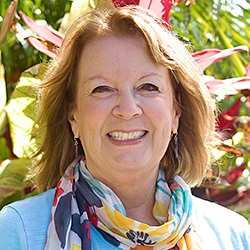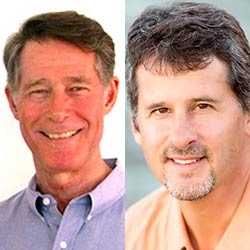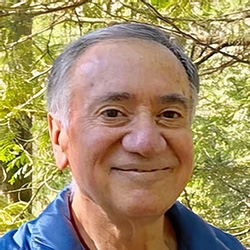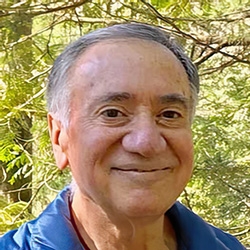
Search Results: suffering
-
Empathy alone can be unreliable in guiding compassionate action. As seen in historical events, military training, personal anecdotes, and scientific experiments, empathy alone may not prevent people from harming others. A sense of duty or obedience, often instilled through fear of punishment and shame, might inhibit empathic action. The antidote may be to fostering empathy without resorting to control, shame, or punishment.
-
Enjoy listening in as Arnina assists participants in fine tuning what they wish for their futures, and what practices they intend to embrace as the course winds down. She also offers strategies for what they can do if they forget their intended practice, and revisits the importance of untangling Needs from Core Belief.
-
Kristin Masters explores how to approach goal-setting and self-reflection with compassion and mindfulness grounded in NVC principles. She encourages you to examine how conscious choice plays a role in how we treat ourselves and others.
-
Ask the Trainer: “I would love some clarity about the NVC perspective on the cause of our feelings. It seems to me that my needs may be met or not, but the cause of my painful feelings is my story around the situation.”
-
Trainer Tip: NVC-based social change naturally emerges from “a certain kind of spirituality”, a quality of spiritual clarity. Intuitions and impulses arising from spiritual clarity are more likely to support sustainable systems. Read on for how to bring more of this in, and ways to transform your complaint into commitment.
-
There are many polarizing issues we can resist and fight over. The word "resistance" can mean fighting against what we don’t agree with in counterproductive ways. It can also be the illusion and futility of mentally fighting against reality of 'what is'. But acceptance, non-resistance, of what is doesn’t mean powerless resignation. Another way to resist is to accept and love whole-heartedly, with empathy and care for the people doing the things we are resisting.
-
John Kinyon leads participants through two Observation Exercises to strengthen their ability to be present. Through the exercises, John distinguishes the difference between feelings, which are emotions felt inside the body, and observations which are witness to our experience.
-
From the depths of internal winter to the melting open in the warm sunshine of spring to rest in the ocean of Spirit, this poetry is a journey of discovering deep Presence through the human experiences so many of us share.
-
In this telecourse recording, you will learn and practice self-awareness skills to fine tune your attention to met needs; savoring feelings of well-being; expressing these feelings to others; and receiving other people's messages of joy, gratitude, inspiration and more!
-
Join LoraKim Joyner to investigate how merging science, the social and emotional intelligence of humans, animals and other species and Nonviolent Communication can bring a greater sense of belonging and wholeness to your life, and care and justice to the lives of others.
-
When you or anyone is upset, what could underneath the trigger? There may be more than is immediately visible. This article invites us to explore what it looks like to inquire deeper, take self-responsibility, examine our assumptions, attachments, interpretations, and "certainties" that could be hidden behind the needs that are aching to be attended to...
-
Old emotional hurts and pains can easily erupt when you’re in the throes of conflict – even if you’re the mediator. Wouldn’t it be lovely if you could avoid all of that, and instead create more peace and happiness for yourself, your family, your co-workers and your community?
-
How can we mobilize this insight in support of our own and others' healing? These recordings will shed light on how the social context into which we are born affects our experience, and what we can do about it at the individual level within the paradigm of nonviolence.
-
In thinking about your relationship with fear and doubt, see what happens when you ask yourself "What do you trust?”. Here's an example response to that question, and how it can open new perspective, soften fear, and bring trust to new depths.
-
Self-compassion is essential for healing trauma and restoring your wholeness. It is also an antidote to reactivity and separation, allowing presence to emerge.
In developing presence, you can become what the world needs most in these times of intensity and chaos. This work can strengthen your skills to be more fully in relationship with all that life offers while allowing your heart to be moved by what is alive in you and with others
-
We can see anger as an alarm or signal that can inform us that unmet needs require attention, or that we hold judgements. We can shift our own anger in several healthy ways: get present, identify the stimulus and any judgements or unmet needs, look for ways to meet our needs, make requests that support our needs, express our needs to ourselves and appropriate others, and more.
-
We only have this decade to make radical changes to avert crossing over into an unlivable Earth. What's essential is a critical mass of people with capacity to respond to many enormous, daunting social-environmental challenges. This means on a wider scale, responding to conflict, fear, hate, injustice and violence with the ability to see our commonality underlying our differences. And to feel part of a larger whole so we can birth natural caring, togetherness, and cooperation.
-
Living Compassion in an Ever-Changing World is the last course that Robert Gonzales offered before his passing in November of 2021. It is an intermediate course whose purpose is to deepen our conscious connection to our own vital life force, to develop skills that support inner healing, and to grow and strengthen daily practices that allow us to truly live life to the fullest.
-
Empathy is a form of attunement. Empathy is giving your compassionate curiosity by guessing another’s feelings and needs. Consider how you live or relate to each of these 12 essential aspects of empathy. Some of them mention how we can offer empathy without abandoning ourselves, how empathy isn't always the best response, and how "Empathy can be offered when you disagree with another’s opinion, memory, or perspective."
-
Two NVC trainers went into dangerous, war torn territory to share the skills they found so valuable but end up learning that they need to first apply those skills before those they came to help could receive what they had to offer. Only when the foundation of connection and trust was built could they mediate the conflicts using empathic communication.





















